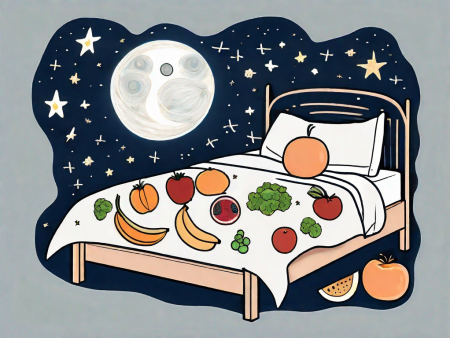Discover the powerful benefits of meditation for depression and how it can help improve mental well-being.
Exploring the Benefits of Meditation for Depression
Welcome to a journey full of inner peace, serenity, and a dash of enlightenment! In this article, we will delve into the fascinating realm of meditation and how it can become your trusted ally in the battle against depression. So, get ready to find your Zen and discover the incredible benefits of meditation!
Understanding Depression: A Brief Overview

Before we embark on our meditation adventure, let’s take a moment to understand the formidable opponent we’re up against – depression. This sneaky little devil can cast a dark cloud over even the sunniest of dispositions, leaving a trail of exhaustion, sadness, and a general disinterest in life’s joys.
Depression can be caused by many factors, such as genetic predisposition, traumatic experiences, or chemical imbalances in the brain. Whatever the trigger, it’s essential to acknowledge that depression is a real and valid struggle that affects millions of people worldwide.
Let’s delve deeper into the science behind depression to gain a better understanding of its complexities.
The Science Behind Depression
So, what’s happening in our brain when the gloomy bug of depression bites? Well, it turns out that neurotransmitters like serotonin and norepinephrine, which usually help regulate our mood, go a little haywire. It’s like they decide to take a vacation at the worst possible moment, leaving us feeling like we’re stuck in a gray and lonely desert.
But it’s not just neurotransmitters that are involved. Scientists have also discovered that areas of the brain responsible for emotional processing, cognitive functions, and stress response are affected by depression. It’s like our brain’s balance is out of whack, leading to pervasive negative thoughts and a profound sense of hopelessness.
Furthermore, research has shown that chronic stress can contribute to the development and worsening of depression. When we experience prolonged stress, our body releases cortisol, a stress hormone that can disrupt the delicate equilibrium in our brain. This disruption can further exacerbate the symptoms of depression, making it even more challenging to overcome.
Common Symptoms and Effects of Depression
Depression is like a shape-shifting ninja, disguising itself in various forms that can affect our mind, body, and soul. Some common symptoms include persistent sadness, fatigue, lack of concentration, changes in appetite and sleep patterns, and a loss of interest in previously enjoyable activities.
But the impact of depression goes beyond these emotional and cognitive symptoms. Not only does depression cast its heavy shadow on our daily lives, but it can also impact our physical health. It’s like a two-headed monster that drains our energy while leaving us vulnerable to a plethora of health issues.
Studies have shown that individuals with depression are at a higher risk of developing chronic conditions such as heart disease, diabetes, and obesity. The constant stress and inflammation associated with depression can take a toll on our immune system, making us more susceptible to infections and illnesses.
Moreover, depression can also affect our relationships and social interactions. The isolation and withdrawal that often accompany depression can strain our connections with loved ones, leading to feelings of loneliness and further exacerbating our depressive symptoms.
Understanding the multifaceted nature of depression is crucial in developing effective strategies to combat it. By shedding light on the intricate workings of this mental health condition, we can work towards creating a world where those affected by depression can find the support and understanding they need to heal.
The Concept of Meditation: An Introduction
Now that we’ve become acquainted with our nemesis, let’s meet our secret weapon – meditation! Rooted in tradition, meditation has been around for centuries, offering a path to inner peace, tranquility, and a fully charged spiritual battery. It’s like pressing the pause button on the chaos of life and granting yourself a moment of blissful silence.
But what exactly is meditation? At its core, meditation is a practice that involves training the mind to focus and redirect thoughts. It is a mental exercise that allows individuals to achieve a state of heightened awareness and clarity. Through meditation, one can explore the depths of their consciousness, unraveling the mysteries of the mind and unlocking a world of self-discovery.
The History and Philosophy of Meditation
It’s time to dive into the time capsule and take a quick trip through the history of meditation. From its ancient origins in Hinduism and Buddhism to finding its way into the hearts and minds of people worldwide, meditation has become a universal tool for self-discovery and personal growth.
In ancient India, meditation was practiced as a means to attain spiritual enlightenment and liberation from the cycle of birth and death. The early yogis and sages dedicated their lives to exploring the inner realms of consciousness, seeking to understand the nature of existence and the interconnectedness of all things.
As time passed, meditation spread beyond the borders of India, finding its way into various cultures and belief systems. In China, Taoist practitioners embraced meditation as a means to cultivate harmony with nature and attain a state of balance known as “wu wei.” In Japan, Zen Buddhism emphasized the practice of meditation as a way to achieve sudden enlightenment and experience the true nature of reality.
The philosophy behind meditation emphasizes the importance of living fully in the present moment, accepting our thoughts without judgment, and cultivating a sense of mindfulness that can transform our lives. By quieting the mind and observing our thoughts and emotions with detached awareness, we can gain insight into the patterns and conditioning that shape our experiences. Through this process, we can learn to let go of limiting beliefs and attachments, paving the way for personal growth and spiritual awakening.
Different Types of Meditation Practices
Just like there are many flavors of ice cream to suit every taste bud, there are various styles of meditation to fit your individual preferences. Whether you’re drawn to focused attention meditation, where you concentrate on a specific object or mantra, or you prefer the open-heartedness of loving-kindness meditation, there’s a technique just waiting for you to explore.
One popular form of meditation is transcendental meditation, which involves the use of a mantra to transcend ordinary thinking and access deeper levels of consciousness. This technique, popularized by Maharishi Mahesh Yogi, gained popularity in the 1960s and continues to be practiced by millions worldwide.
Mindfulness meditation, on the other hand, involves bringing one’s attention to the present moment, observing thoughts, sensations, and emotions without judgment. This practice, rooted in Buddhist teachings, has gained widespread recognition for its ability to reduce stress, improve focus, and enhance overall well-being.
Guided imagery meditation takes participants on a visual journey, using the power of imagination to create a sense of relaxation and inner peace. By engaging the mind in vivid and soothing imagery, this practice can help individuals tap into their subconscious mind and access their inner wisdom.
So, grab your cushions, close your eyes, and let’s dive into the world of meditation. Whether you’re a beginner or an experienced practitioner, there’s always something new to discover on this transformative journey of self-exploration and inner growth.
The Intersection of Meditation and Mental Health
Now that we’ve laid the groundwork, let’s uncover the magical connection between meditation and mental health. Prepare to be amazed as we explore how the simple act of sitting quietly and focusing your mind can have profound effects on your brain and emotional well-being!
Meditation’s Impact on the Brain
Get ready for a mini brain workout! When we meditate, it’s like shifting our brain into high gear, activating regions associated with emotional stability, self-awareness, and compassion. It’s like hitting the jackpot and winning a one-way ticket to a happier, healthier brain!
Studies have shown that regular meditation can also increase gray matter in areas related to memory, learning, and emotion regulation. It’s like giving our brain a much-needed boost, enhancing its resilience and preparing it for the rollercoaster ride of life.
Emotional and Psychological Benefits of Meditation
Now for the juicy part – the emotional and psychological perks of practicing meditation. When we meditate, it’s like we’re dialing down the volume on our negative thoughts and amplifying the positive ones.
Meditation can help reduce stress, improve sleep, boost our overall sense of well-being, and enhance our ability to navigate the choppy waters of life’s challenges. It’s like discovering our resilient superhero within while equipping ourselves with the necessary tools to battle depression.
Meditation as a Tool for Depression
Now that we’ve armed ourselves with knowledge and explored the wonders of meditation, let’s examine how this ancient practice can become your loyal companion in the fight against depression.
How Meditation Can Alleviate Depressive Symptoms
Picture this: you’re sitting down, focusing on your breath, and gradually becoming aware of the thoughts swirling around in your mind. Through meditation, we can cultivate a sense of self-compassion, acceptance, and inner peace, gently guiding us through the storm of depression.
By consistently practicing meditation, we can train our minds to let go of negative thought patterns, reduce rumination, and foster a more positive outlook on life. It’s like shifting from black and white to vibrant technicolor, letting the beauty of the world seep back into our souls.
The Role of Mindfulness in Managing Depression
Mindfulness is like the dependable sidekick to meditation, joining forces in the battle against depression. Through mindfulness, we learn to be fully present in the here and now, observing our thoughts and emotions without judgment.
By cultivating mindfulness, we can become better equipped to recognize and respond to depressive episodes with kindness and understanding. It’s like putting on a superhero cape and becoming the protagonist of our own life story.
Implementing Meditation into Your Daily Routine
It’s time to roll up our sleeves and explore how to incorporate meditation into our daily lives, allowing it to become our trusty companion on this epic journey to conquer depression!

Practical Tips for Starting a Meditation Practice
Ready to dip your toes in the serene pool of meditation? Here are some practical tips to kickstart your practice:
- Start small: Begin with just a few minutes a day, gradually increasing the duration as you become more comfortable.
- Create a sacred space: Designate a peaceful corner in your home where you can retreat and embark on your meditation journey.
- Experiment with techniques: Explore different meditation styles to find the one that resonates with your inner self.
Overcoming Challenges in Meditation
As with any worthy endeavor, there will be hurdles to overcome along your meditation path. Here are some common challenges you might encounter and how to tackle them with grace:
- Distracted mind? Gently bring your attention back to your breath or chosen object whenever your mind starts wandering off on a mental escapade.
- Impatience creeping in? Remember, meditation is not a race. Embrace the journey and let go of expectations. Rome wasn’t built in a day, after all!
- Resistance knocking at your door? Start with small, manageable steps and acknowledge any discomfort that arises. Slowly but surely, your resistance will transform into commitment.
And there you have it, my fellow soul travelers! By exploring the realms of meditation and harnessing its ancient power, we can unveil a path paved with immense benefits for managing depression.
Remember, this journey is not a sprint – it’s a marathon. Allow yourself to grow, adapt, and discover the unique joys that meditation can bring to your life. May your path be filled with tranquility, healing, and an infinite supply of inner peace!







